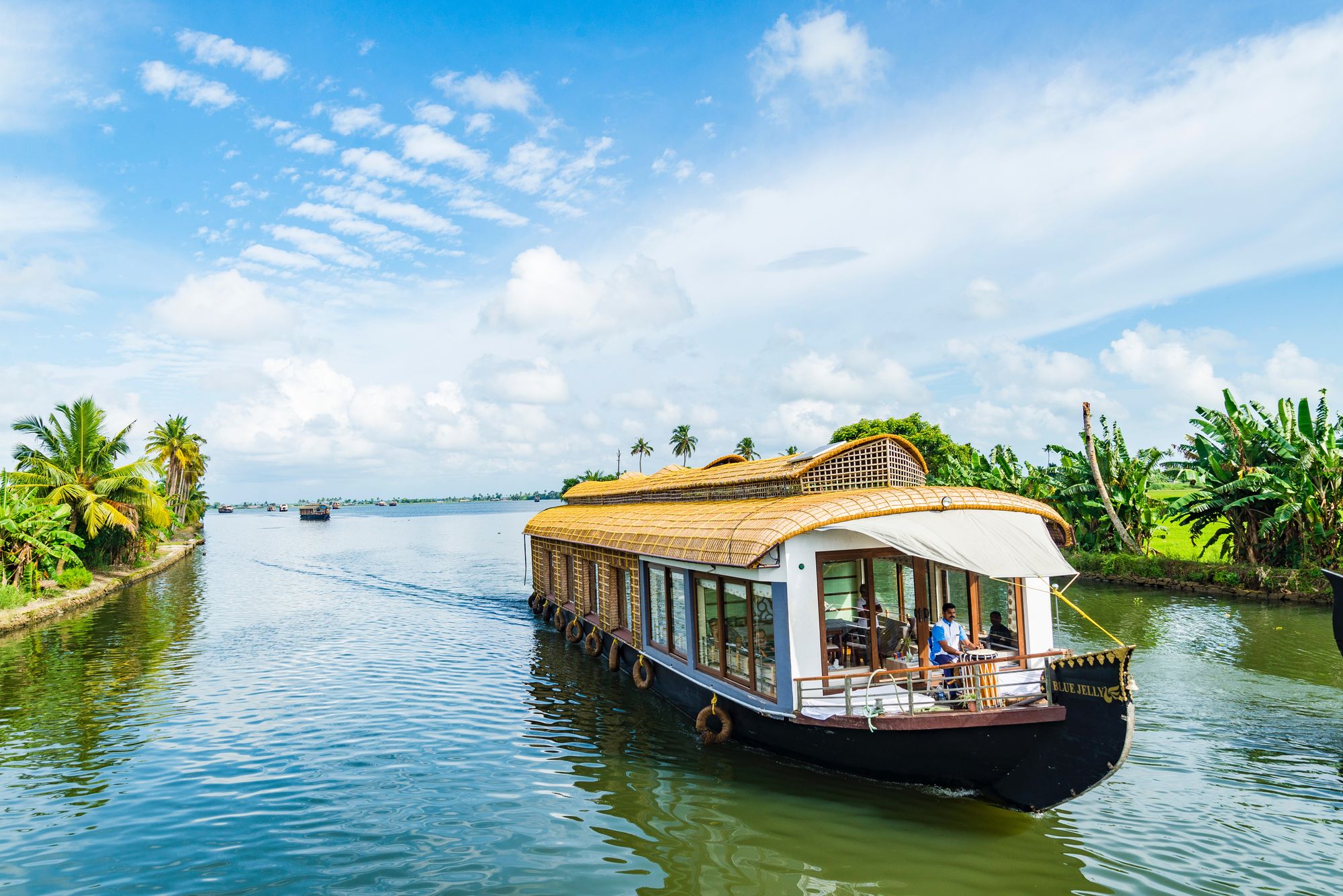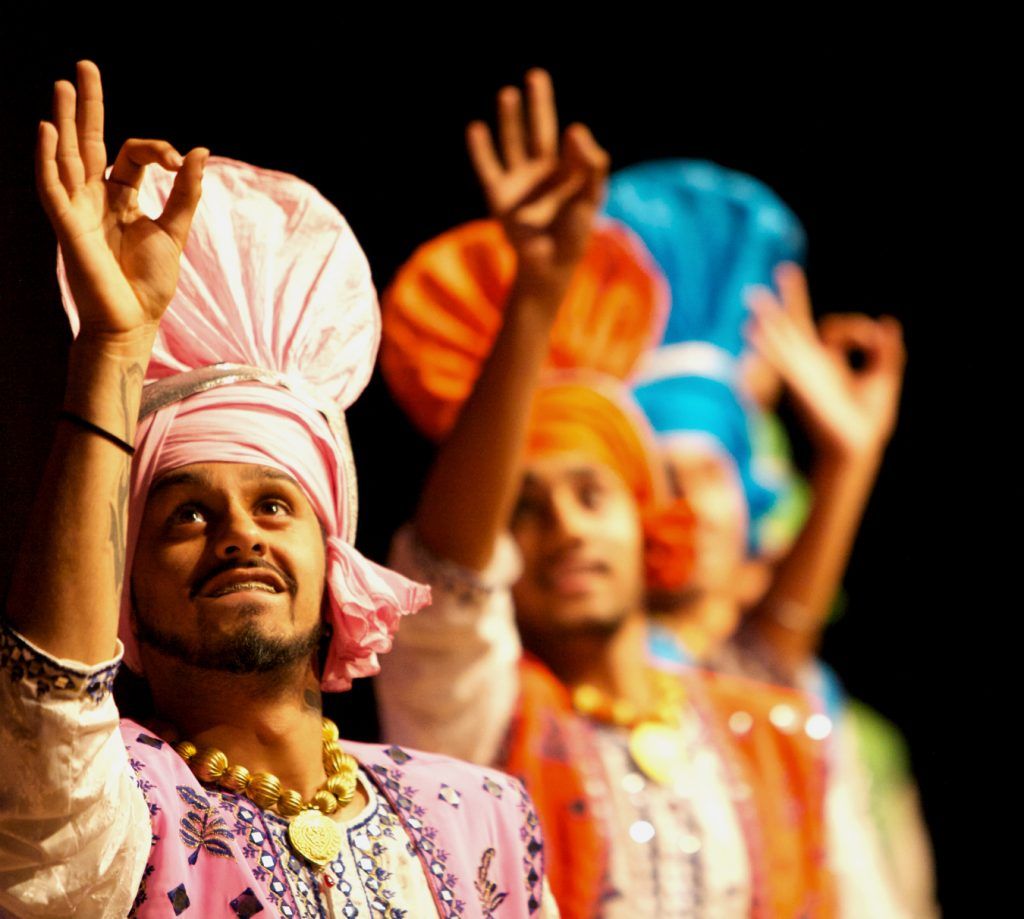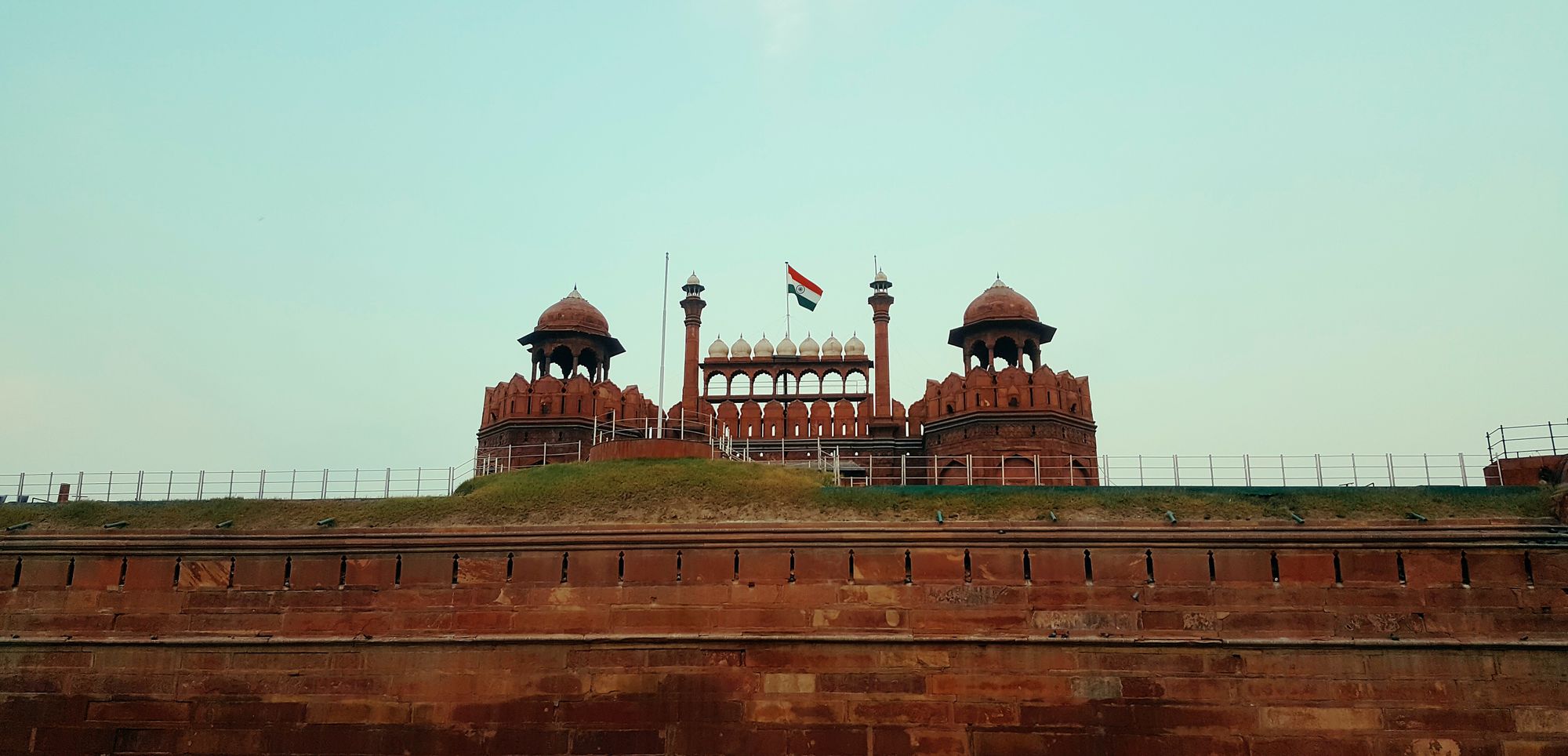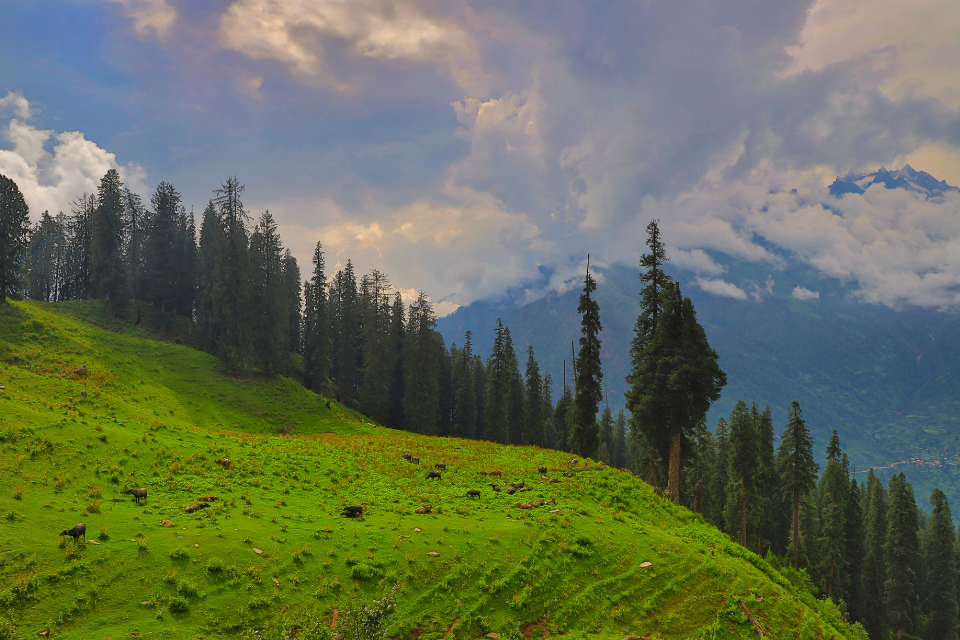There are a number of different Indian holidays that you can celebrate during this period of the year. We're sure you're excitedly awaiting the delivery of your 2023 calendars as the year has only just begun so you can begin planning your vacations, quick outings, or family days. Additionally, a country with the cultural richness of India has a plethora of festivals to look forward to.
When it comes to holidays, Uttar Pradesh must be one of the states with the most, each of which results in several days off for you. We have produced a list of holidays to aid you in planning your itinerary. Additionally, read this article to learn more about each holiday and how it's observed when you're travelling and paying attention to all the holidays.
In today’s guide, we’ll cover the state ‘Uttar Pradesh’ and its national holidays, regional holidays, and bank holidays. There’s something for everyone on this list, so start planning your calendar today!
- About Uttar Pradesh
- List of Holidays in Uttar Pradesh for the Year 2023
- Bank Holidays in Uttar Pradesh for the Year 2023
- Frequently Asked Questions (FAQs) on Uttar Pradesh Holidays in 2023
- How Can Deskera Assist You?
Let's get started!
About Uttar Pradesh
Uttar Pradesh (often abbreviated as UP) is a state located in northern India. It is the most populous state in the country, with over 200 million people, and covers an area of 243,290 square kilometers.
Uttar Pradesh is home to a number of major cities, including the capital, Lucknow, and the cities of Kanpur, Agra, Allahabad, Varanasi, and Mathura. It is bordered by the states of Uttarakhand, Himachal Pradesh, Haryana, Delhi, Rajasthan, Madhya Pradesh, Chhattisgarh, Jharkhand, and Bihar.
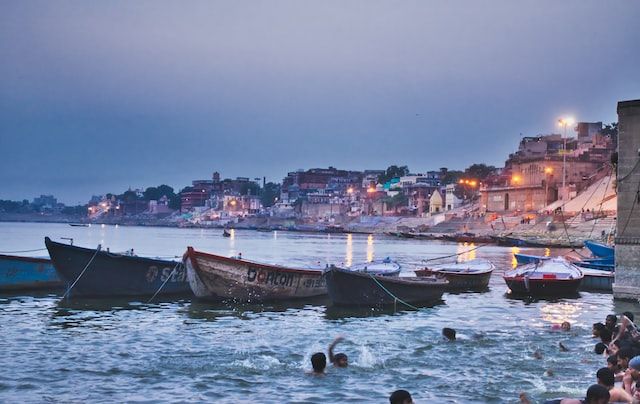
The state has a diverse geography, ranging from the Himalayan foothills in the north to the Gangetic Plain in the south. It is home to a number of rivers, including the Ganges, Yamuna, and Ghaghara.
Uttar Pradesh has a long history, with evidence of human habitation dating back to the Stone Age. It was the site of several ancient empires and kingdoms, including the Magadha, Maurya, and Gupta Empires.
The state is known for its rich cultural heritage, with numerous Hindu temples, Buddhist stupas Uttar Pradesh has a long history, with evidence of human habitation dating back to the Stone Age. It was the site of several ancient empires and kingdoms, including the Magadha, Maurya, and Gupta Empires.
The state is known for its rich cultural heritage, with numerous Hindu temples, Buddhist stupas, and Islamic monuments dotting the landscape. It is also home to several UNESCO World Heritage Sites, such as the Taj Mahal, Agra Fort, and Fatehpur Sikri.
Uttar Pradesh is also home to some of India's most important religious sites. The city of Varanasi is an important pilgrimage center for Hindus, while the city of Allahabad is an important center for Jains and Buddhists. The city of Ayodhya is an important pilgrimage center for Hindus and is the site of the legendary birthplace of the god Rama. Uttar Pradesh is also known for its many festivals, such as Holi, Diwali, and Dussehra.
Uttar Pradesh is also home to some of India's most important educational and research institutions, such as the Banaras Hindu University and the Indian Institute of Technology Kanpur. Uttar Pradesh is also home to some of India's largest industrial hubs, such as the cities of Kanpur, Lucknow, Agra, and Ghaziabad.
List of Holidays in Uttar Pradesh for the Year 2023
Check the following table where we’ve listed crucial information regarding Uttar Pradesh's public holidays for 2023.
Both the federal and state governments have made their respective holiday schedules public.
Bank Holidays in Uttar Pradesh for the Year 2023
Republic Day (26th January 2023 — Thursday)
India's Republic Day honors the date on which the Constitution of India came into force on 26 January 1950, replacing the Government of India Act (1935) as the governing document of India.
On this day, the first President of India, Dr. Rajendra Prasad, took the oath of office. The main Republic Day parade takes place in the national capital, New Delhi, from the Raisina Hill near the Rashtrapati Bhavan (President's Palace), along the Rajpath, past India Gate and on to the historic Red Fort.
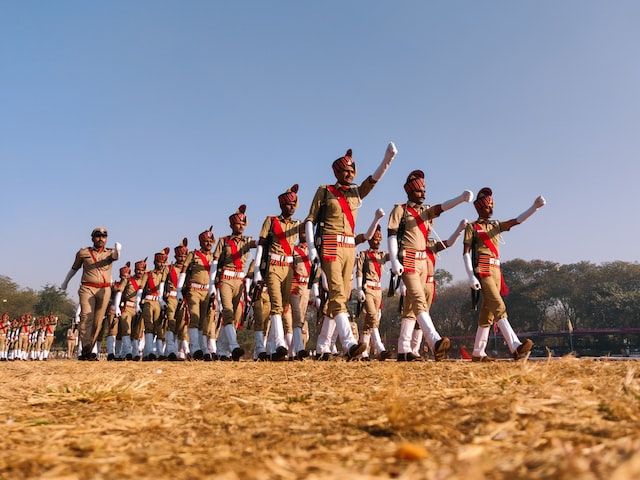
Republic Day is a national holiday in India. It is celebrated by the people of India with great pride and enthusiasm. Flag hoisting ceremonies, parades, cultural events and other festivities take place throughout the country to mark the occasion.
At the national level, the Prime Minister of India pays homage to martyrs at the Amar Jawan Jyoti at India Gate, following which the President of India unfurls the national flag and delivers the Republic Day address to the nation.
In his speech, the President highlights the achievements of the past year and the work done for the welfare of the people. The Indian Army, Navy, Air Force and other para-military forces also participate in the parade, displaying their might and showcasing their latest acquisitions. The day culminates with a spectacular firework display at Rajpath.
Hazrat Ali Jayanti (5th February 2023—Sunday)
Hazrat Ali Jayanti is celebrated to commemorate the birth anniversary of Imam Ali, the fourth Caliph of Islam and the first Shi'ite Imam. He was born in the city of Mecca, in present-day Saudi Arabia, in the year 600 CE. He is considered one of the most influential figures in Islamic history and is often referred to as the "Asadullah" (Lion of Allah).
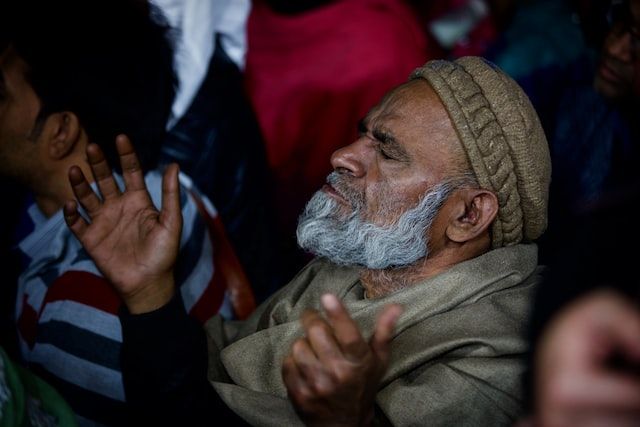
Hazrat Ali Jayanti is celebrated on the 13th day of Rajab, the seventh month of the Islamic lunar calendar. It is a major festival in the Shia Muslim community and is celebrated with great enthusiasm in countries such as India, Pakistan, Iraq and Iran.
On this day, Shia Muslims visit the shrines of Imam Ali and offer their prayers and supplications. They also read verses from the Quran and share stories about the life and teachings of the Imam.
Hazrat Ali Jayanti is also celebrated by Sunni Muslims in some parts of the world. They celebrate it to commemorate the day that Imam Ali was appointed as the fourth Caliph of Islam. On this day, Sunni Muslims gathers in mosques to offer their prayers and listen to lectures about the life and teachings of Imam Ali.
This day is also marked by special recitations of the Qur'an, lectures about Islamic history and culture, and various other activities. Sunni Muslims also uses this day to remember the sacrifices made by Imam Ali for the cause of Islam and to strengthen the bonds of brotherhood and sisterhood in the Muslim community.
Maha Shivaratri (18th February 2023 — Saturday)
Maha Shivaratri is a Hindu festival celebrated in honor of the god Shiva and is celebrated annually on the 13th night and 14th day of the Hindu month of Phalguna (February/March). The festival marks a day of devotion, fasting and ritualistic worship of Shiva, and is observed by Hindus all over the world.
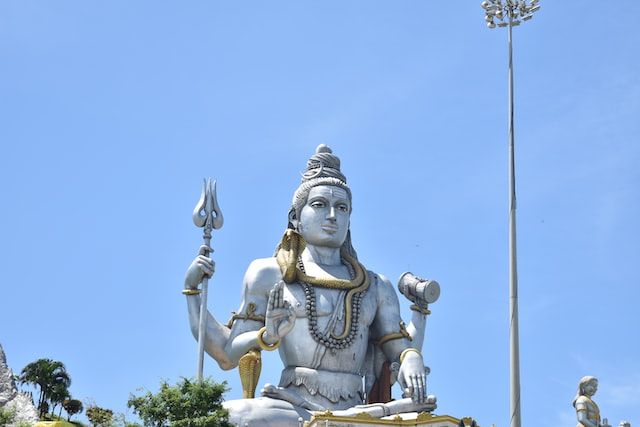
The festival is believed to be the day when Shiva performed the cosmic dance of creation, preservation and destruction. The celebration includes a night-long vigil, where devotees keep watch over a Shiva lingam or a representation of Shiva. The day is also marked with special pujas, offering of bael leaves, chanting of mantras, and meditation on the auspicious day.
Maha Shivaratri is also an important day for Sadhus, or Hindu holy men, who gather at major Shiva temples to perform elaborate rituals and sermons. Some Sadhus even fast for the entire day and night and perform puja in their ashrams.
The festival is also an important occasion for devotees, as it is believed that worshipping Shiva on this day brings good luck and prosperity. People also offer prayers to Shiva to seek his blessings and protection.
Holi (8th March 2023 — Wednesday)
Holi is an annual Hindu festival celebrated in India, Nepal and other countries with a large Hindu population. It is celebrated in the spring, usually in March or April. It is also known as the 'Festival of Colors'.
The celebration of Holi marks the beginning of spring, the end of winter, and the victory of good over evil. It is a time for people to come together and celebrate with music, dancing, and of course, color!
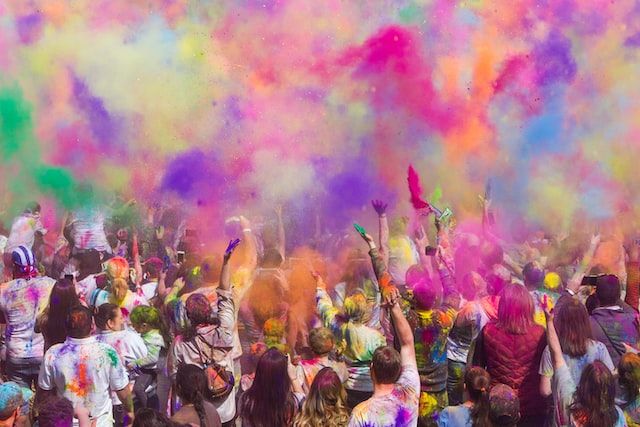
On the day of Holi, people gather and splash each other with brightly coloured powders and dyes, known as gulal or abir. They also light bonfires, sing and dance, and enjoy traditional sweets such as gujiya and malpuas.
The night before Holi is known as Holika Dahan, which marks the story of Holika, a demon who tried to burn Prahlad, an ardent devotee of Lord Vishnu. The bonfire is lit to symbolize the victory of good over evil.
Holi is a great time to come together and celebrate with family and friends. It is a time to forget all differences, forgive each other, and strengthen the bonds of friendship and love. So, if you’re looking for a way to celebrate, try out some traditional Holi activities such as playing with colored powder, singing, dancing, and feasting on delicious foods. And no matter what you do, let the spirit of Holi fill your heart with joy and love.
Ram Navami (30th March 2023 — Thursday)
To commemorate the birth of Lord Rama to King Dasharatha of Ayodhya, Ram Navami is performed. King Dashratha is reported to have had three queens: Kaushalya, Sumitra, and Kaikeyi. The three queens were unable to conceive children for a very long time.
King Dashratha performed the "Putrakameshti Yagna," a sacred rite that was suggested by the scholar Vasishtha. The monarch carried out a rite in which he offered "payasam" to each of his women in order to fulfil his desire to become a father. The outcome was that the monarch was given a baby son on the ninth day of the Hindu month of Chitra. Lakshmana and Bharata were born to the other queens, but Lord Rama was born to Queen Kaushalya.
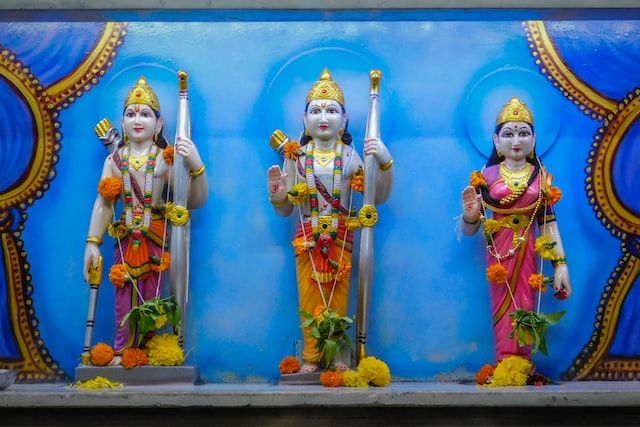
Sage Vasishtha advised King Dashratha to perform the "Putrakameshti Yagna," a sacred ritual. In order to fulfil his desire to have children, the king performed the ritual by giving "payasam" to each of his wives. The emperor thus obtained the blessing of a son on the ninth day of the Hindu month of Chitra. However, Lord Rama was born to Queen Kaushalya, while Lakshmana and Bharata were born to the other queens.
Ram Navami is one of the five major Hindu holidays that are celebrated by both higher and lower caste people. Lord Rama is regarded as the Hindu god Vishnu's seventh incarnation. Although this day has been declared a holiday by numerous Indian governments, it is observed on diverse days. Hindus fast, attend temples, and invoke Lord Rama's blessings on this day. This spring's incident unequivocally proves the idea that virtue will prevail over evil.
Mahavir Jayanti (4th April — Tuesday)
Mahavir Jayanti is a major annual festival celebrated by Jains all over the world to mark the birth of their 24th Tirthankara (Enlightened Teacher), Vardhamana Mahavira. It is celebrated on the thirteenth day of the bright half of the Hindu month of Chaitra (generally falling in March or April).
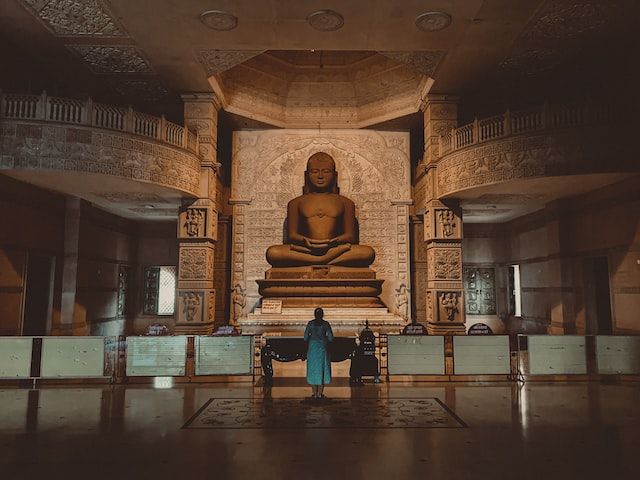
On this day, devotees visit temples and offer puja to Lord Mahavira. They also take part in religious discourses, bhajans and kirtans. People also observe fasts on this day and visit the nearby Jain temples to worship Lord Mahavira.
In some parts of India, the day is celebrated in a grand way with huge processions of devotees carrying colorful flags, drums and cymbals and chanting holy mantras. The main attraction of the processions is the chariot carrying a huge statue of Lord Mahavira.
The day is also marked with a number of charity activities such as donations of food, clothes and toys to the poor and needy. In addition, Jains celebrate the day by organizing special lectures and discussions on the teachings of Lord Mahavira.
The main objective of the celebrations is to spread the message of non-violence and peace, and to bring people closer to the Jain path of wisdom. The festival is a reminder to the Jain community to stay close to their roots and practice the teachings of Lord Mahavira in their everyday lives.
Good Friday (7th April 2023 — Friday)
Good Friday, also known as Great Friday, Holy Friday, or Black Friday, is a Christian holiday commemorating the crucifixion of Jesus Christ and his death at Calvary.
It is observed during Holy Week as part of the Paschal Triduum on the Friday preceding Easter Sunday, and may coincide with the Jewish observance of Passover. It is also known as “Good” Friday because it is the day on which Jesus Christ died for the sins of mankind.
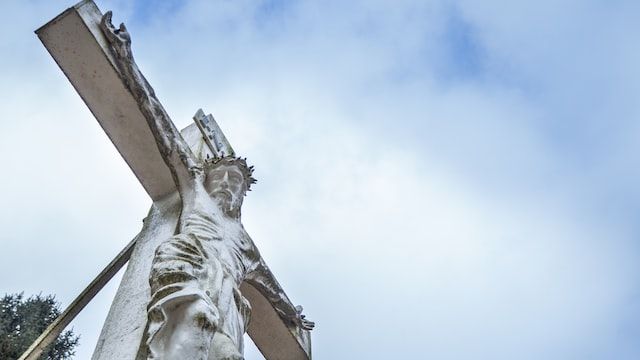
The day is also marked by fasting, prayer, and penitence. Many churches hold special services, often with a sermon about the crucifixion. Traditional symbols include the cross, the crucifix, and images of the Virgin Mary, sometimes referred to as the “Pietà.” In some churches, the priest will wear purple vestments, symbolizing the royal color of the Passion.
In some countries, such as the United Kingdom and Ireland, Good Friday is a public holiday. In others, such as the United States and Canada, it is not a legal holiday, but many businesses and organizations will close in observance.
Dr Ambedkar Jayanti (14th April 2023 — Friday)
Dr. Bhimrao Ambedkar Jayanti is celebrated on 14 April every year to commemorate the birth anniversary of Dr. Bhimrao Ambedkar, who is considered to be the Father of the Indian Constitution. He was an Indian jurist, economist, politician, social reformer and a scholar who campaigned against social discrimination against Dalits, women, and other minority groups. He also played a major role in the upliftment of the downtrodden.
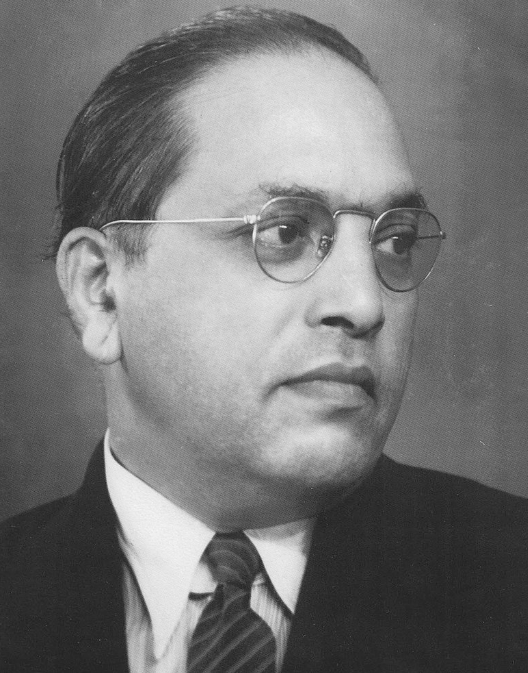
The day is celebrated to remember and pay homage to the immense contributions made by Dr. Ambedkar towards the upliftment of the underprivileged sections of society and for the establishment of an egalitarian society. On this day, several programs and activities are organized to spread awareness about the social reforms brought about by Dr. Ambedkar.
The day is also observed as a day of national importance with government offices, educational institutions and other important organizations remaining closed. People also gather at Dr. Ambedkar's birthplace in Mhow to pay their respects.
Idul Fitr (22nd April 2023 — Saturday)
Eid-ul-Fitr is one of the two major Islamic festivals celebrated each year. It marks the end of the month-long fasting of Ramadan. Eid-ul-Fitr is celebrated on the first day of Shawwal, the month that follows Ramadan in the Islamic calendar.
The festival is celebrated with much fanfare and involves feasting, gifting, and prayers. On the morning of Eid-ul-Fitr, Muslims gather in mosques to offer special congregational prayers. They wear their best clothes and greet each other with words of ‘Eid Mubarak’. After the prayers, they exchange gifts and hugs with family and friends.
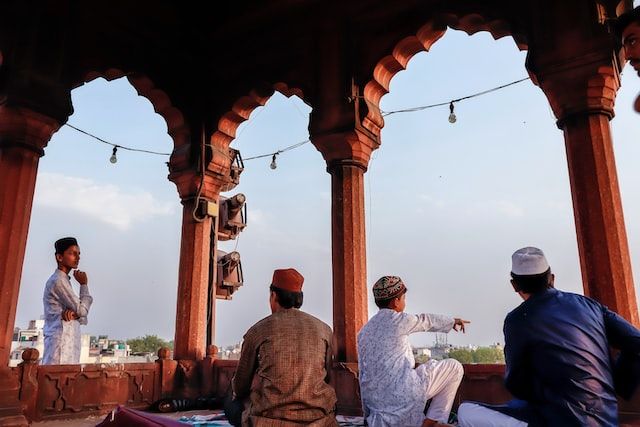
Families prepare special dishes and sweets to mark the occasion. Sweet dishes such as sheer khurma (vermicelli pudding), sevaiyan (sweet vermicelli), and phirni (rice pudding) are a common feature of the Eid-ul-Fitr feast. The sweets are usually served along with savory dishes such as biryani (rice and meat dish) and kebabs.
Traditionally, Eid-ul-Fitr is also a time for charity. Muslims are encouraged to give a certain amount of money or food to the poor and needy. This amount is known as Zakat-ul-Fitr, or Fitrana. It is usually in the form of money, food items or clothes.
Eid-ul-Fitr is a time of celebration and happiness for all Muslims, regardless of where they live or what their background is. It is a time to show appreciation and thankfulness for all that Allah has given us. It is a time to come together, to share gifts, exchange greetings and to reconnect with family, friends and loved ones.
Buddha Purnima (5th May 2023 — Friday)
Buddha Purnima, also known as Vesak, is one of the most important festivals of the Buddhist faith. It celebrates the birth, enlightenment and death of the Buddha. It is celebrated on the full moon day in the month of Vaisakh according to the Hindu calendar (April/May). It is also celebrated in some countries as a public holiday.
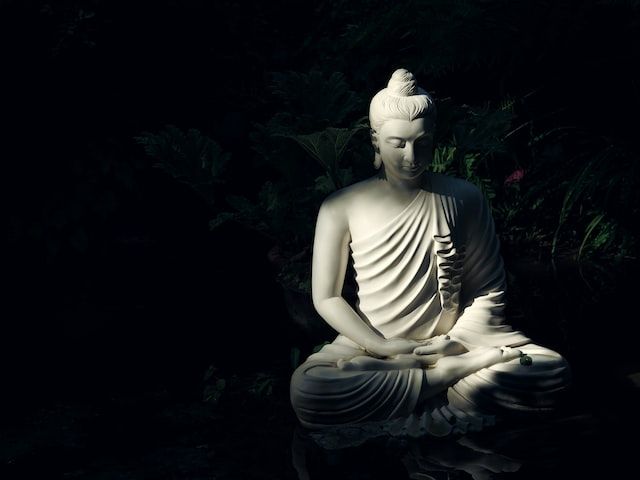
The festival is celebrated with various rituals, such as lighting of lamps, reciting of Buddhist prayers, meditation and chanting of hymns. Buddhists also offer special prayers to commemorate the life and teachings of the Buddha. Temples are decorated with colorful flags and flowers. Devotees offer food to the monks and make charity to the poor.
In some parts of India, people also organize processions and fairs to celebrate Buddha Purnima. The streets are decorated with prayer flags, flowers and illuminated lamps. People also exchange gifts and greetings with each other.
Buddha Purnima is an opportunity for Buddhists to reflect on the teachings of the Buddha and to strive to lead a life of compassion and peace.
Bakrid/ Eid Al Adha (29th June 2023 — Thursday)
Eid al-Adha (Arabic: عيد الأضحى, romanized: ʿīd al-ʾaḍḥā, lit. 'Feast of the Sacrifice' is the second of two Islamic holidays celebrated worldwide each year, and considered the holier of the two. It honors the willingness of Ibrahim (Abraham) to sacrifice his son Ismael as an act of obedience to God's command. Before he sacrificed his son, God provided a male goat to sacrifice instead.
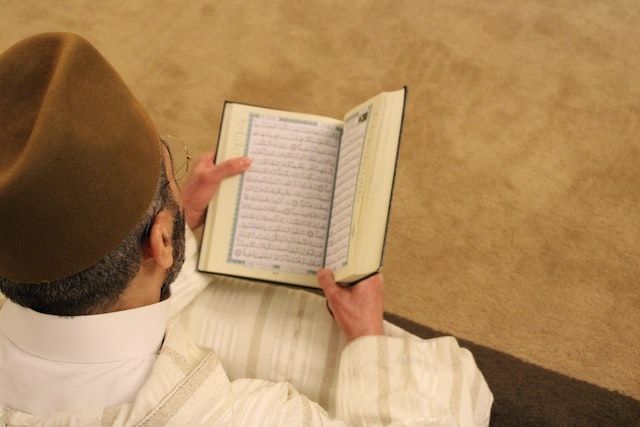
In commemoration of this, an animal is sacrificed and divided into three parts: one third of the share is given to the poor and needy; another third is given to relatives, friends and neighbors; and the remaining third is retained by the family.
Eid al-Adha annually falls on the 10th day of the month of Dhu al-Hijjah of the lunar Islamic calendar. The festivities last for four days or more depending on the country. Eid al-Adha is the latter of the two Eid holidays, the former being Eid al-Fitr.
Eid al-Adha is sometimes also known as the "Festival of the Sacrifice," as it commemorates the willingness of Ibrahim (Abraham) to sacrifice his son Isma'il (Ishmael) as an act of obedience to God's command. Muslims around the world observe this event by sacrificing an animal, usually a sheep, and distributing the meat to family, friends, and the poor.
Eid al-Adha also marks the end of the annual Islamic pilgrimage known as the Hajj. During the Hajj, millions of Muslims from around the world travel to Mecca, Saudi Arabia to perform various rites of pilgrimage. Upon returning from the Hajj, many celebrate by hosting large feasts, exchanging gifts, and visiting relatives.
Muharram (29th July 2023 — Saturday)
Muharram is the first month of the Islamic calendar. It is one of the four sacred months of the year in which fighting, and warfare is prohibited according to the Quran. It is a time of mourning for Muslims, who commemorate the death of Husayn ibn Ali, the grandson of the Prophet Muhammad and son of Ali, at the Battle of Karbala in 680 AD. During Muharram, Muslims fast, perform acts of charity, and give special sermons and lectures.
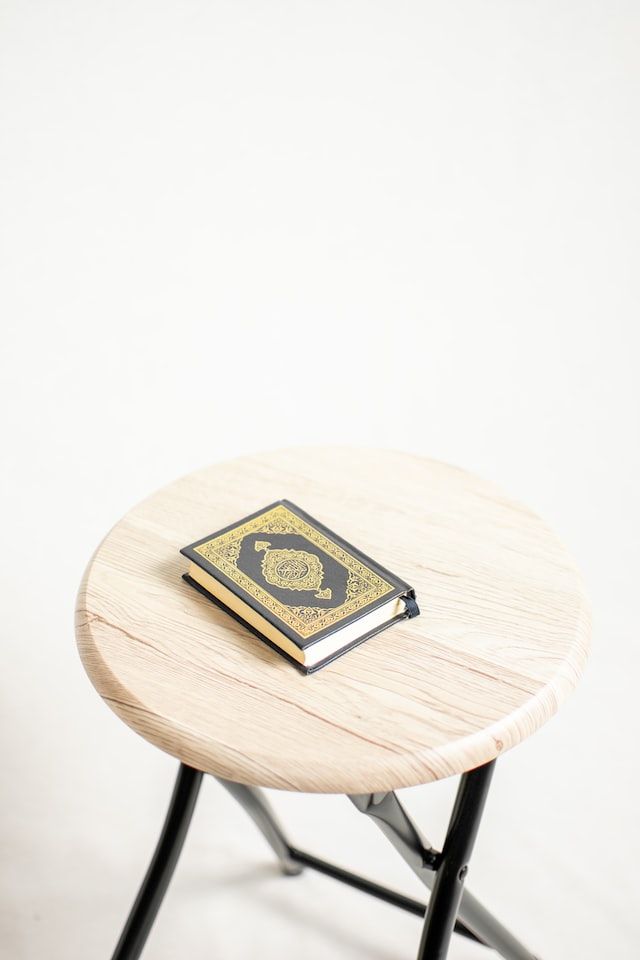
The month of Muharram is divided into two parts, the first ten days are known as the Days of Muharram and the last ten days are known as the Days of Ashura. The first ten days are a time of mourning and remembering the martyrdom of Husayn ibn Ali and his family. During these days, special sermons and lectures are given in mosques and homes. The last ten days are a time of joy and celebration and are marked by feasting and exchanging gifts.
Muharram is a time for reflection and repentance, and Muslims are encouraged to look into their own hearts and seek forgiveness for their sins. It is also a time to remember and celebrate the sacrifices of Husayn ibn Ali and other martyrs of the Battle of Karbala. Muslims around the world commemorate the event with processions and mourning ceremonies, and some also fast during the first 10 days of Muharram.
Independence Day (15th August 2023—Tuesday)
India celebrates its Independence Day on August 15th every year. This day marks the nation’s independence from British rule in 1947. On this day, the first Prime Minister of India, Jawaharlal Nehru, addressed the nation from the Red Fort in Delhi and gave a famous speech known as Tryst with Destiny.
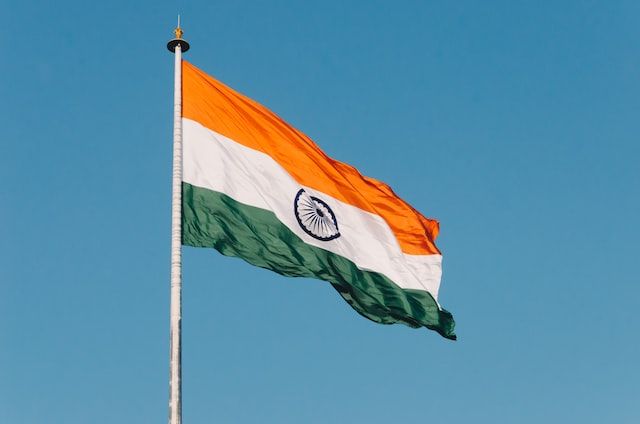
The Indian Independence Movement was a long struggle that lasted nearly two centuries. It began with the Sepoy Mutiny of 1857 and gradually gained momentum in the early 20th century. Mahatma Gandhi led the movement with his non-violent civil disobedience, and it eventually resulted in the British leaving India.
On August 15th, 1947, the Indian Independence Act 1947 was passed, officially granting India independence. The Act divided India into two separate countries, India and Pakistan. The act also established a constitution for India that provided the framework of democracy, civil rights, and fundamental freedoms. Since then, India has become the world’s largest democracy and has made tremendous strides in the areas of economy and society.
Raksha Bandhan (31st August 2023 — Thursday)
Raksha Bandhan, popularly known as Rakhi, is an Indian festival that celebrates the bond of love and protection between siblings of a family. It is celebrated on the full moon day of the Hindu month of Shravana (July–August).
On this day, sisters tie a special thread of protection, called the Rakhi, around the wrists of their brothers. In turn, the brothers promise to protect their sisters and shower them with gifts.
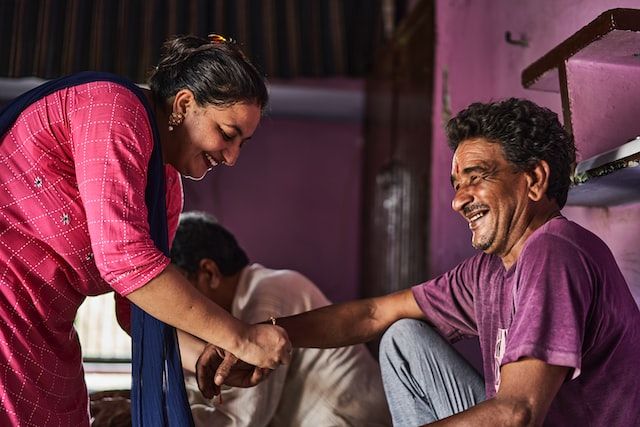
The festival has its origins in ancient Hindu mythology. According to a popular legend, when Lord Krishna was wounded during a battle, his beloved sister, Subhadra, tied a sacred thread around his wrist to protect him from harm. This act of love and protection is celebrated to this day as Raksha Bandhan.
On the day of Raksha Bandhan, sisters wake up early and perform a special puja that includes the ceremonial tying of the Rakhi. They also offer prayers for the long life and prosperity of their brothers. Brothers, in turn, exchange gifts with their sisters and express their love for them. They may also give them money as a token of their affection.
In some parts of India, the festival is celebrated with great pomp and show. Elaborate designs of Rakhis are created and made available for sisters to choose from. Sisters also prepare special dishes for their brothers. Brothers, in turn, visit their sisters and bring them gifts, sweets, and other items. After the ceremony, the family gathers for a grand feast and the day ends with brothers and sisters exchanging gifts and wishing each other a happy Raksha Bandhan.
Janmashtami (7th September 2023 — Thursday)
Janmashtami is an annual Hindu festival that celebrates the birth of Lord Krishna. It is usually celebrated on the Ashtami of Krishna Paksha in the Hindu calendar month of Shravana (August/September).
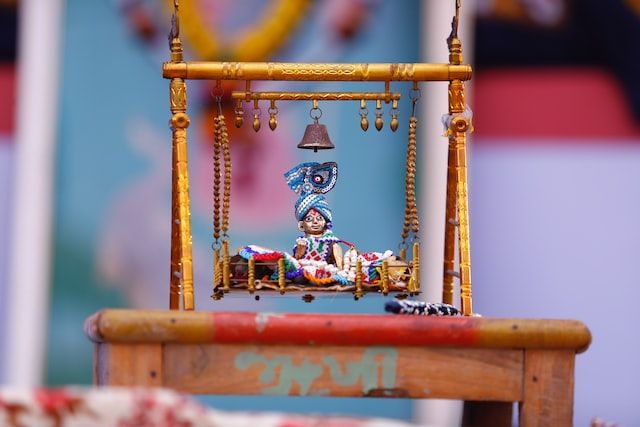
The festival is celebrated by fasting, singing devotional songs, offering prayer, and performing religious rituals. It is also celebrated with great fervour in temples and homes by enacting the birth of Lord Krishna and the stories associated with it. People also draw colourful Rangolis outside their homes, prepare sweets and savouries, and decorate their homes with flowers. The festival is celebrated with great enthusiasm and is one of the most important festivals of the Hindu religion.
Janmashtami is celebrated in different ways in different parts of India. In some parts, it is celebrated with a lot of pomp and show, with people participating in processions and pujas. In other parts, it is celebrated by people gathering in temples to perform puja and offering prayers to Lord Krishna. People also prepare special dishes and sweets for this festival.
Krishna Janmashtami is celebrated with great devotion and reverence across India and around the world. It is a time when people come together and share the joy of the Lord’s birthday. It is a time of great celebration and fun, when people come together to sing, dance and pray to the Lord.
Eid-e-Milad (28th September 2023 — Thursday)
Eid-e-Milad-un-Nabi is an Islamic festival celebrated to commemorate the birthday of Prophet Muhammad (PBUH). It is also known as Mawlid, Milad and Maulid.
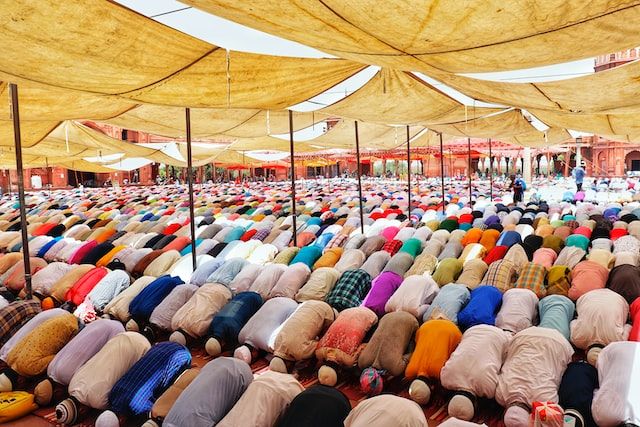
The festival is observed by Muslims throughout the world by gathering in large congregations in mosques to recite verses from the Quran and to listen to religious discourses. Special prayers are also offered for the peace and prosperity of the Muslim ummah (community). Gifts are exchanged, feasts are prepared, and sweets are distributed.
In some countries, public processions, fireworks and illuminations are also observed. The festival also serves as a reminder of the Prophet’s exemplary character and teachings and serves to spread his message of peace and harmony among the Islamic community.
In some countries, people may dress up in special attire or wear traditional clothing. They might also put-up decorations and lights in their homes or businesses. Public gatherings are also common, with people gathering to listen to lectures about Islam and to exchange gifts.
People may also take part in activities such as fasting, praying, and charity work. Many also mark the occasion by visiting the mosques and other holy places associated with Prophet Muhammad.
Gandhi Jayanti (2nd October 2023 — Monday)
Gandhi Jayanti is India’s national holiday celebrated on October 2nd every year to mark the birth anniversary of Mohandas Karamchand Gandhi, famously known as the Father of the Nation. He was born on October 2, 1869, in Porbandar, Gujarat.
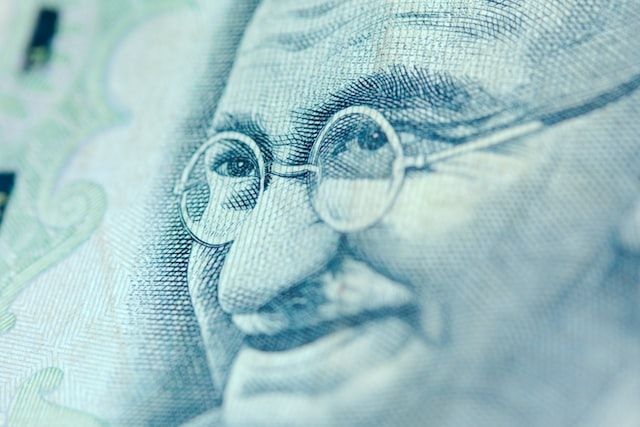
Gandhi Jayanti is observed as a day of non-violence, peace and harmony, in tribute to the ideals of Mahatma Gandhi. People across the country celebrate the day by joining together in prayer and meditation. Special prayers and worship services are held in temples and other places of worship. Schools and colleges organize special events and programs to commemorate the life and work of Gandhi.
The government of India has declared the day as a national holiday, and it is celebrated in all states and Union Territories. On this day, many government offices and other institutions remain closed. In addition, Gandhi’s portrait is displayed in many public places and his statues are garlanded with flowers.
Gandhi Jayanti is an important day in the Indian calendar and is celebrated with much enthusiasm and reverence. It is an occasion to remember the principles of non-violence and truth that Gandhi stood for, and to strive to make these ideals a part of our everyday lives.
The day marks the birth anniversary of Mahatma Gandhi, leader of the Indian independence movement and one of the most influential figures in modern India.
On this day, people from all over the country pay tribute to the great leader by holding special programs, speeches, marches and other events. People also take part in community service, such as helping the poor and the needy, as a way of honoring Gandhi's legacy.
Maha Navami (23rd October 2023 — Monday)
Maha Navami is the ninth day of the ten-day Durga Puja festival. This day is celebrated all over India as the last day of Navratri. The day marks the victory of Goddess Durga over the demon, Mahishasura. People observe this day with great devotion and by worshipping Goddess Durga. On this day, the image of the goddess, installed during the festival, is ceremoniously taken to a river or pond for immersion.
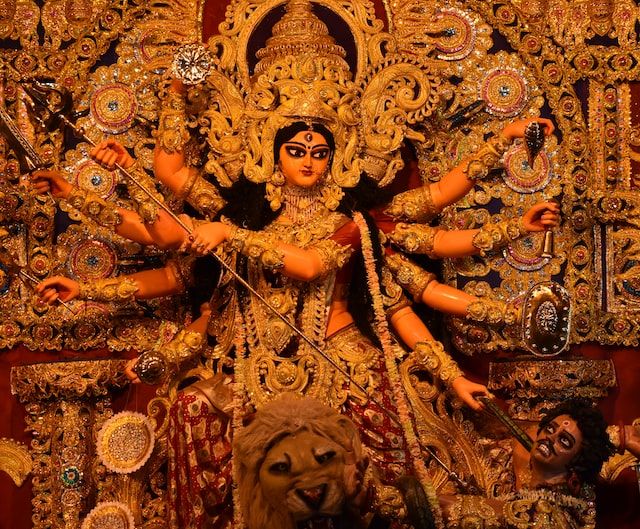
The day is also celebrated as Saraswati Puja in the eastern parts of India. On this day, books and other educational material are worshipped as a gesture of seeking divine blessing of Goddess Saraswati. It marks the end of the nine-day period of Navratri.
The day is celebrated with much enthusiasm and gaiety in different parts of the country. People dress in traditional attire, decorate their homes, cook special dishes and organize cultural events.
Maha Navami also marks the beginning of the Durga Puja festival in Kolkata. On this day, clay idols of the goddess are installed in pandals, and people gather to offer prayers and seek her blessings. The festival is celebrated with much fanfare and grandeur in the city of joy, with special celebrations and cultural events throughout the city.
The day is filled with chanting of hymns, flute music, and drumbeats, as devotees seek the blessings of the goddess. On this day, people also offer prayers to the deity, perform traditional rituals, and exchange sweets and gifts.
Vijaya Dashmi (24th October 2023 — Tuesday)
Vijayadashami is a Hindu festival celebrated on the tenth day of the month of Ashvin, the seventh month of the Hindu calendar. It is celebrated to commemorate the victory of Lord Rama over Ravana. The festival is also known as Dussehra or Dasara.
Vijayadashami is an important Hindu festival that is celebrated with great pomp and show in India. It marks the victory of good over evil and is celebrated in different ways in different parts of the country.
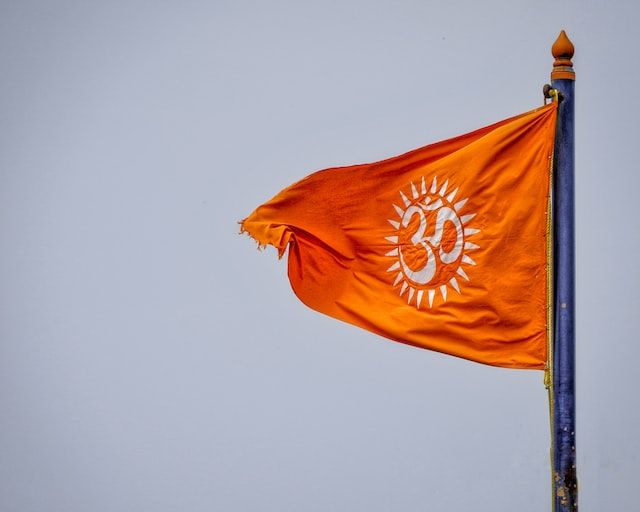
In some places, elaborate processions are organized with floats and effigies of Ravana, while in others, a huge bonfire is lit and effigies of Ravana are burnt. People celebrate the day by exchanging sweets, performing traditional rituals and playing games.
Vijayadashami is also a day of learning and knowledge. People visit educational institutions, libraries, and centers of learning to seek knowledge and gain wisdom. People also visit temples to seek blessings from the gods and goddesses. On the day of Vijayadashami, many people observe a fast or a vrat and perform poojas and homas to seek divine blessings.
Vijayadashami marks the end of the nine-day festival of Navratri and is celebrated with great enthusiasm and joy all over India. People wear new clothes, prepare sweets and savories, and exchange gifts with their loved ones. It is also a day to indulge in festivities and take part in cultural activities like music, dance, and drama. The day is also marked by processions of people carrying flags, blowing conch shells and playing drums.
Diwali (12th November 2023 — Sunday)
Diwali is an ancient Hindu festival celebrated in India and around the world. It is an official holiday in India, Nepal, Sri Lanka, Bangladesh, Mauritius, Myanmar, Trinidad & Tobago, Suriname, Guyana, and Fiji. The festival is celebrated for five consecutive days and is known as the “festival of lights,” with each day symbolizing a different aspect of life.
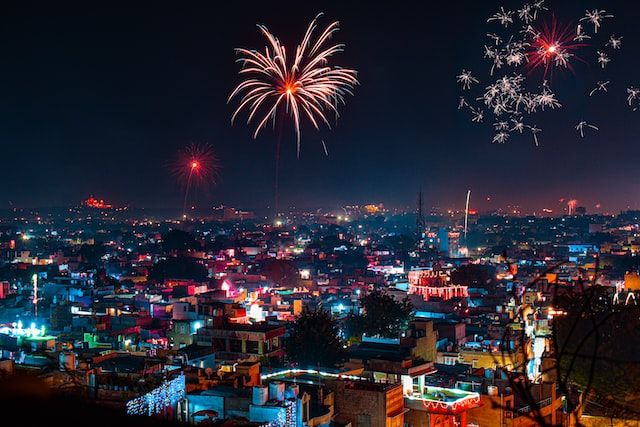
The first day of Diwali is known as Dhanteras and is considered to be the beginning of the festival. On this day, people clean their homes, buy new clothes, and exchange gifts. On the second day, people light diyas (lamps) and candles to ward off evil spirits. On the third day, Lakshmi Puja is performed, and people pray to the goddess of wealth, Lakshmi.
On the fourth day, Govardhan Puja is performed, and people offer prayers to Lord Krishna. The fifth and final day of Diwali is known as Bhai Dooj, where sisters and brothers exchange gifts and sweets.
Diwali is an important Hindu festival celebrated with much fanfare. It is a time for family gatherings, exchanging gifts, and worshiping gods. The festival is celebrated for five consecutive days, ending on the day of Diwali. On the first day of Diwali, Hindus perform the puja, or worship of the Goddess Lakshmi. This puja is believed to bring wealth and prosperity for the upcoming year.
On the second day, celebrated as Naraka Chaturdashi, Hindus clean their homes and perform pooja of Lord Krishna. On the third day, the celebrations reach their peak with Diwali, or the festival of lights.
On this day, people light diyas, or earthen lamps, and distribute sweets among family and friends. On the fourth day, Govardhan Puja is performed, which symbolizes the victory of Lord Krishna over the demon, King Indradev. The fifth and final day is celebrated as Bhai Dooj, when sisters pray for the long life of their brothers. Diwali is a festival of joy and happiness and is celebrated all over India with great enthusiasm.
Deepavali Holiday (13th November — Monday)
Deepavali, also known as Diwali, is the five-day festival of lights celebrated by Hindus, Jains and Sikhs in India and other parts of the world. The festival usually falls in late October or early November and marks the start of the Hindu New Year.
On the seventh day of the festival, known as Govardhan Puja, Hindus celebrate the day when Lord Krishna, the eighth avatar of Lord Vishnu, lifted the Govardhan mountain to protect the people of Vrindavan from the wrath of Indra.
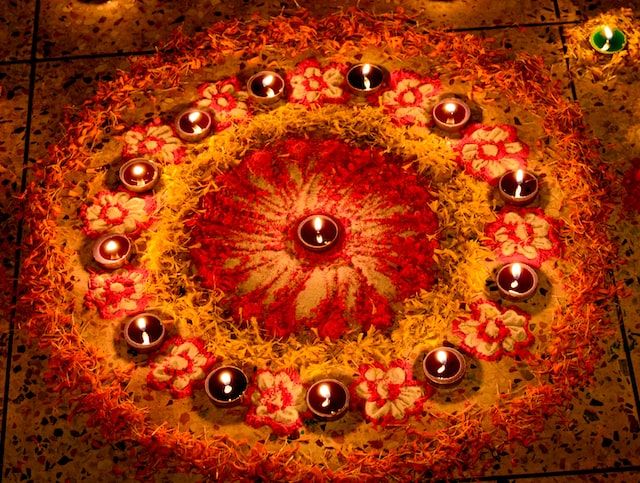
The eighth day is known as Annakut and is celebrated in some parts of India to commemorate the day when Lord Krishna lifted the Govardhan mountain. On this day, devotees prepare an array of delicious dishes, which are later offered to Lord Krishna.
The ninth day is known as Yama Dwitiya or Yama Dvitiya. This day is dedicated to Lord Yama, who is the god of death. He is believed to be the judge who decides the fate of people after their death. People perform various rituals and offer prayers to Lord Yama on this day. They also fast and chant mantras related to Lord Yama.
Bhai Dooj (15th November — Wednesday)
Bhai Dooj is a Hindu festival celebrated on the second day of the Shukla Paksha (the waxing phase of moon) in the Vikram Samvat Hindu calendar month of Kartik. It is celebrated on the same day as the Hindu festival of Diwali. This festival celebrates the bond between a brother and a sister.
The sister performs a Puja for her brother, praying for his health and well-being. She then applies a Tilak (a mark of auspiciousness) on his forehead and offers him a gift. The brother in turn offers his sister a gift and promises to take care of her. This exchange of gifts and the performance of the Puja are the main rituals of Bhai Dooj.
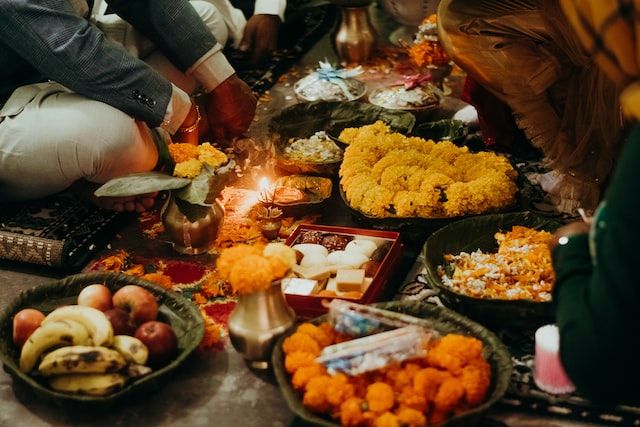
The name of this festival varies across regions of India. In some parts of India, it is known as Bhai Phota, Bhai Beej, Bhau-Beej or Bhai Teeka. In Gujarat, it is called Bhai Bij. The festival is also celebrated in Nepal and some parts of Pakistan.
The legend behind the festival is associated with Lord Krishna and his sister Subhadra. One day, Subhadra invited Krishna to her home to participate in the annual Ratha yatra. During the yatra, Subhadra asked Krishna to take a ride in a chariot.
Krishna agreed and the chariot was pulled by two horses. As the chariot moved through the streets, the people of Vrindavan followed it singing, dancing and rejoicing. This festival became known as the Ratha Yatra and is celebrated every year in Vrindavan and all over India.
The most important aspect of the Ratha Yatra is the ‘Dhvaja’ or the flag that is attached to the chariot of Krishna. This symbolizes the victory of good over evil and is a reminder of Krishna’s divine power.
The festival is celebrated with much enthusiasm and passion. On the day of the Ratha Yatra, devotees gather at the temple of Lord Krishna and offer prayers, food and cakes. Processions with music, dance and singing accompany the chariot of Lord Krishna as it is pulled through the streets. People of all ages join in the procession and offers flowers and prayers to the chariot.
Guru Nanak Jayanti (27th November 2023 — Monday)
Guru Nanak Jayanti is a religious festival celebrated by the followers of Sikhism to celebrate the birth of their first guru, Guru Nanak. It is celebrated on the full moon day of the Kartik month of the Hindu lunar calendar, which usually falls in the month of November or December. The festival is also celebrated in some parts of India, Pakistan and Nepal.
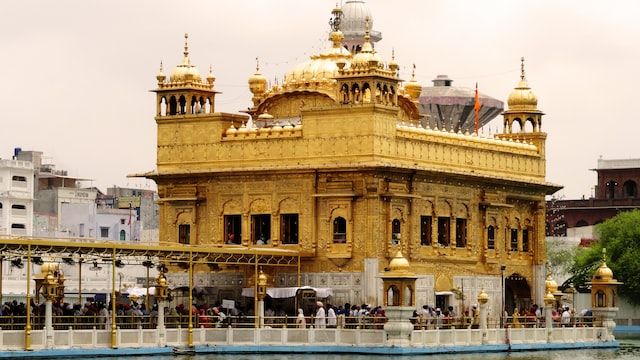
Guru Nanak Jayanti is celebrated in a grand manner by the Sikh community. The celebration starts early in the morning with a special prayer service known as the Akhand Path. This is followed by the singing of hymns from the Guru Granth Sahib, the holy book of the Sikhs. Devotees also visit Gurdwaras, where special prayer services are held, and offer their prayers to Guru Nanak.
On the day of Guru Nanak Jayanti, devotees gather at Gurdwaras to celebrate this spiritual festival. They offer prayers, sing hymns from the Guru Granth Sahib and listen to kirtans (devotional songs). After the kirtans, a special langar (community meal) is served. The langar includes traditional vegetarian dishes, which is a symbol of equality and the oneness of humanity.
Devotees also exchange sweets and greet each other with joy and happiness. People also visit their relatives and friends to share their joy and happiness. People also light diyas (oil lamps) to pay homage to the teachings of Guru Nanak.
Christmas Day (25th December 2023 — Monday)
Christmas Day is celebrated annually on December 25th and marks the birth of Jesus Christ. It is a national holiday in many countries around the world, including the United States, Canada, the United Kingdom, Ireland, Australia, and New Zealand.
On Christmas Day, people gather to exchange gifts, sing carols, and enjoy a festive meal. Churches often hold special services and masses, and Nativity plays are performed. Some people even go caroling door-to-door.

Many homes are decorated with a Christmas tree, lights, and other festive decorations. Some families also hang a wreath on their door or window and put out candy canes to signify the spirit of the season.
Christmas Day is also a time for family and friends to come together and share in the joy of the holiday. Gatherings usually involve a feast or special meal, and often feature a variety of traditional Christmas dishes from around the world.
In the evening, people often gather around a fire or gather around the Christmas tree to sing carols, exchange gifts, and enjoy each other’s company. Many cultures also have a tradition of sharing stories and playing games throughout the day.
Christmas Day is a day for celebration, joy, and time spent with family and friends. It is a time to give thanks for the blessings of the year and to look ahead to the coming year with hope and optimism. On Christmas Day, people often exchange gifts, enjoy large meals, and attend religious services.
In some countries, particularly in North America and Europe, the celebration of Christmas Day has become increasingly secularized and commercialized. Many people now celebrate the holiday without any reference to its religious origins.
Frequently Asked Questions (FAQs) on Uttar Pradesh Holidays in 2023
Following, we’ve discussed some crucial questions that might pop up in your mind regarding Uttar Pradesh holidays in 2023. Let’s discuss:
Que 1: Is a leave of absence for a public holiday required?
Answer: In most cases, if there is a public holiday, you might not need to ask for a leave of absence. However, it is your responsibility to make sure that your company recognizes the public holiday declared by the Uttar Pradesh government as a holiday. You must confirm with HR if your employer also observes a public holiday. If it doesn't, you'll need to ask for a personal leave.
Que 2: I was born and grew up in Uttar Pradesh, albeit I now reside in another Indian city. Can I get holidays of Uttar Pradesh?
Answer: No, you cannot take advantage of the holidays in Uttar Pradesh if you work and reside in another Indian city. You must reside and work in an Uttar Pradesh city to enjoy the holidays.
Que 3: What months in 2023 will have the most holidays?
Answer: For each of the months of October and November, up to five days of vacation are planned. During the months of October and November, it is common to see people celebrating festivals like as ID-e-Milad, Diwali, Chhath Pooja, Guru Nanak Jayanti, Mahanavmi, Dussehra, etc. April and August are two other months that each have up to four days off.
Que 4: If a holiday falls on a weekend, will the day before be treated as a holiday?
Answer: The day preceding a holiday that falls on a weekend is not considered a holiday. Private enterprises may, however, close early on a holiday. It is typically advisable to check with your HR and the holiday list to determine if a holiday is granted or not before making any preparations.
Que 5: Why is it vital to have the Uttar Pradesh Calendar 2023?
Answer: Yes, there must be a schedule for holidays for the working community. During festival holidays, working professionals enjoy spending time with their friends and families.
Alternatively, they could want to plan a trip to the preferred areas. The ability to quickly access a list of holidays may make planning easier. In their perspective, businessmen should stock up on certain items during festivals. The 2023 Uttar Pradesh holiday schedule comes to the rescue.
How Can Deskera Assist You?
Employees plan vacations around holidays; this may also include taking some extra leaves, so managing their payrolls can be a little tedious. Imagine software that could do that for you. Yes, Deskera can help you with that. Deskera People helps digitize and automate HR processes like hiring, payroll,leave, attendance, expenses, and more. Simplify payroll management and generate payslips in minutes for your employees.

In addition to a powerful HRMS, Deskera offers integrated Accounting, CRM & HR Software for driving business growth.
To learn more about Deskera and how it works, take a look at this quick demo:
Deskera Books enables you to manage your accounts and finances more effectively. Maintain sound accounting practices by automating accounting operations such as billing, invoicing, and payment processing.
Deskera CRM is a strong solution that manages your sales and assists you in closing agreements quickly. It not only allows you to do critical duties such as lead generation via email, but it also provides you with a comprehensive view of your sales funnel.
Deskera People is a simple tool for taking control of your human resource management functions. The technology not only speeds up payroll processing but also allows you to manage all other activities such as overtime, benefits, bonuses, training programs, and much more. This is your chance to grow your business, increase earnings, and improve the efficiency of the entire production process.
Final Takeaways
We've arrived at the last section of this guide. Let's have a look at some of the most important points to remember:
- Uttar Pradesh (often abbreviated as UP) is a state located in northern India. It is the most populous state in the country, with over 200 million people, and covers an area of 243,290 square kilometers.
- Uttar Pradesh is also home to some of India's most important religious sites. The city of Varanasi is an important pilgrimage center for Hindus, while the city of Allahabad is an important center for Jains and Buddhists.
- Krishna Janmashtami, also known as Krishnashtami, Saatam Aatham, Gokulashtami, Ashtami Rohini, Srikrishna Jayanti, Sree Jayanti or sometimes simply as Janmashtami, is an annual Hindu festival that celebrates the birth of Krishna, the eighth avatar of Vishnu.
- India celebrates its Independence Day on August 15th every year. This day marks the nation’s independence from British rule in 1947. On this day, the first Prime Minister of India, Jawaharlal Nehru, addressed the nation from the Red Fort in Delhi and gave a famous speech known as Tryst with Destiny.
- Raksha Bandhan, popularly known as Rakhi, is an Indian festival that celebrates the bond of love and protection between siblings of a family. It is celebrated on the full moon day of the Hindu month of Shravana (July–August). On this day, sisters tie a special thread of protection, called the Rakhi, around the wrists of their brothers. In turn, the brothers promise to protect their sisters and shower them with gifts.
Related Articles
